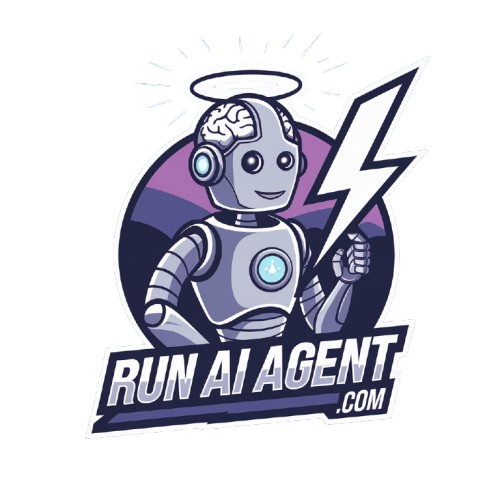Table of Contents

Key Takeaways

AI Agents and the Evolution of Business Operations

Frequently Asked Questions
Key Takeaways
AI agents are rapidly evolving from experimental technology to essential business tools, with Gartner predicting that 33% of enterprise software applications will include agentic AI by 2028, up from less than 1% in 2024. These autonomous and semi-autonomous software entities are transforming business operations by automating complex tasks, analyzing vast amounts of data in real-time, and making informed decisions under human oversight. Beyond mere efficiency gains, AI agents are becoming strategic assets that address customer pain points, optimize workflows, and enable businesses to scale operations without proportional increases in staffing or resources.
The impact of AI agents spans across all organizational functions, creating opportunities for business model innovation and competitive differentiation. By 2025, at least 15% of day-to-day work decisions will be made autonomously through AI agents, allowing human employees to focus on higher-value activities that drive growth. Organizations embracing AI-first thinking are achieving unprecedented levels of operational efficiency, with tasks that previously took weeks or months now completed in hours or minutes.
- Enhanced Efficiency: AI agents automate repetitive tasks and complex workflows across departments
- Increased Customer Satisfaction: Improved order accuracy, reduced response times, and personalized interactions
- Cost Reduction: Optimized inventory management, logistics, and operational processes
- Scalability: Ability to handle increased demand without proportional resource expansion

AI Agents and the Evolution of Business Operations
AI agents are advancing business operations by moving beyond simple automation and evolving into fully autonomous systems. These intelligent software agents can analyze data, make decisions, and act independently, replicating human processes in complex operational environments. They offer the ability to streamline workflows, optimize resource allocation, and enhance customer experiences.
Key benefits of AI agents include enhanced efficiency, increased customer satisfaction, and scalability. They automate repetitive tasks, allowing human employees to focus on high-value activities. AI agents improve order accuracy and response times, leading to stronger customer relationships. Moreover, they optimize workflows and inventory management, reducing operational costs and ensuring consistent business processes. For instance, deploying AI agents has led to significant productivity increases; for example, business intelligence worker productivity rose by 25% in just 90 days in some cases.
In conclusion, AI agents are transforming traditional business workflows by providing the tools necessary for seamless scalability and strategic growth. As companies integrate these autonomous systems, they are poised to achieve heightened efficiency, reduced costs, and sustained competitive advantage in the evolving technological landscape.

Productivity, Cost Optimization, and Competitive Advantage with AI Agents
AI agents are rapidly transforming business operations by automating complex, time-consuming tasks across functions such as IT, finance, and customer service. By handling repetitive workloads, these agents boost worker productivity by nearly 40%, enable faster decision-making, and free up talent to focus on high-value initiatives. This shift from manual execution to proactive, autonomous problem-solving leads to fundamental gains in operational efficiency and agility.
- Automate tasks across departments, reducing manual errors and delays
- Lower costs—contact centers alone are projected to save $80 billion within two years with AI-driven automation
- Deliver hyper-personalized, always-on customer experiences that improve customer satisfaction and retention
- Empower early adopters with scalable, data-driven operations and a sustainable competitive edge
Early investment in AI agent solutions gives organizations a decisive head start, unlocking new business models and elevating both employee and customer experiences beyond the reach of traditional approaches.
Human-AI Collaboration: Preparing for a Hybrid Workforce
The future workplace is increasingly defined by seamless collaboration between humans and AI agents, with each bringing distinct strengths to organizational goals. As AI systems automate repetitive tasks, workers are liberated to focus on innovation, strategic problem-solving, and customer engagement. This partnership not only enhances human creativity but also streamlines workflows and decision-making, paving the way for superior business outcomes.
- Strategic upskilling is critical, with companies ramping up investment in AI training programs to ensure employees thrive alongside intelligent systems.
- Effective human-AI integration depends on clearly defined roles, continuous measurement of real-world skills, and ethical oversight to build trust and unlock new potential.
- Emerging business models center on hybrid teams, where machine precision and human ingenuity deliver results unattainable by either alone.
“By automating routine tasks, AI empowers workers to dedicate more energy to high-level creative and strategic initiatives—transforming professional development and business opportunity.”
Organizations that proactively manage intelligent systems and prioritize ongoing skill development will lead the shift toward a hybrid workforce—one where human-AI collaboration becomes a lasting competitive advantage.
Conclusion
AI agents are rapidly redefining business operations, delivering remarkable gains in productivity, cost savings, and scalability. Organizations deploying these autonomous systems have reported productivity increases of up to 25% within months and measurable reductions in labor costs, with contact centers projected to save $80 billion in just two years. By automating repetitive and complex tasks, AI agents free employees to focus on higher-value work, streamline workflows, and drive customer satisfaction.
- Boost productivity by automating time-intensive processes
- Reduce operational costs and manual errors
- Enable real-time, data-driven decision-making
- Enhance employee experience and customer engagement
Organizations preparing for the future of work should prioritize integrating AI agents into their strategies, invest in workforce upskilling, and embrace a culture of innovation. Those who act now will position themselves to lead in an increasingly automated, competitive marketplace.
Frequently Asked Questions
How will AI agents change business operations in the near future?
AI agents will automate complex workflows, optimize tasks in real time, and enable businesses to scale rapidly. They reason, plan, adapt, and handle a range of processes once managed solely by humans, resulting in increased efficiency and agility.
- Autonomous execution of end-to-end workflows
- Improved decision-making through contextual understanding
- Ability to learn from outcomes and self-improve
- Frees up human talent for creative and high-value tasks
Will AI agents replace jobs or create new opportunities?
AI agents are expected to shift job roles rather than simply replace them, automating repetitive activities while creating demand for new skills and hybrid positions focused on managing, collaborating with, and overseeing intelligent systems.
“The age of agentic AI has arrived—expect a sophisticated digital workforce that augments human creativity, not just automation.”
What are the most significant benefits businesses can expect from adopting AI agents?
Companies leveraging AI agents see faster decision cycles, cost reductions, and improved customer experiences. Early adopters gain a competitive advantage by unlocking new efficiencies and innovative business models.
| Benefit | AI Agent Impact |
|---|---|
| Productivity | Automates 50–70% of routine tasks |
| Cost Optimization | Reduces operational expenses by 20–40% |
| Customer Experience | Enables real-time, hyper-personalized support |
AI agents are set to redefine the workplace by pairing digital scale with human ingenuity, driving tangible value across every layer of business operations.
